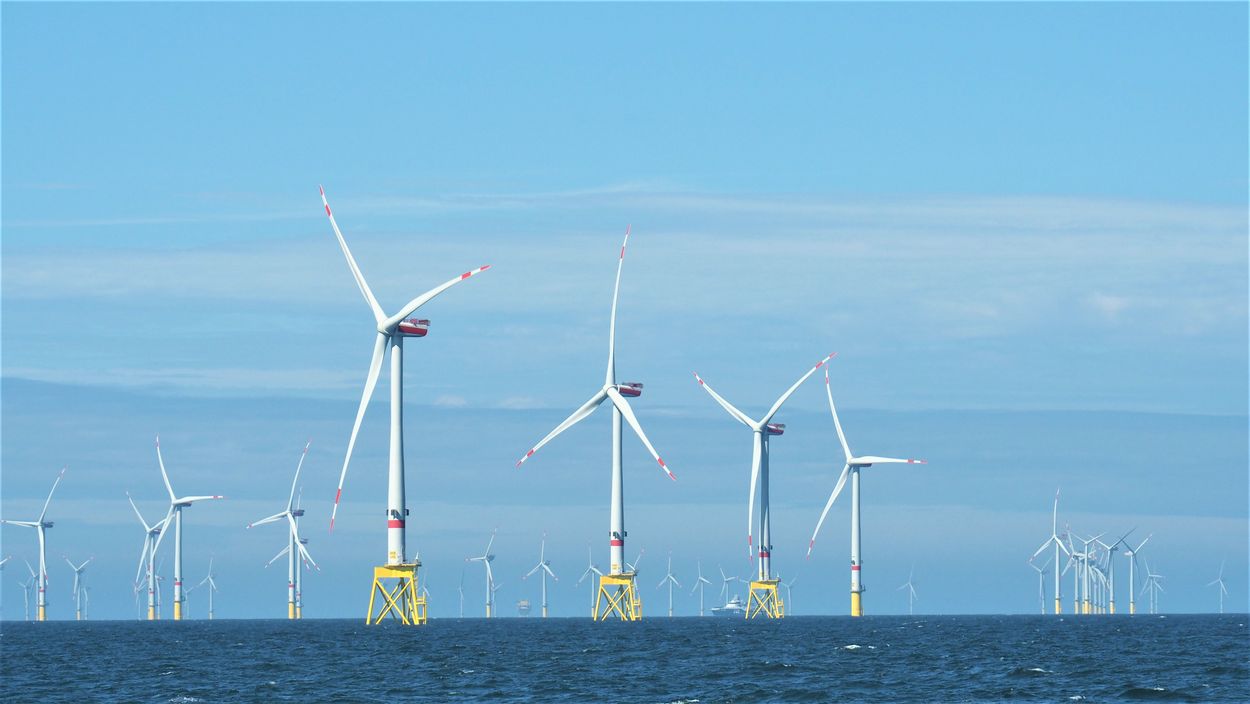Space for fishing will be further limited in many areas of European marine waters. A glance at the planning sketches for the Exclusive Economic Zones (EEZ) of the member states, the areas beyond the 12-mile zone in which the respective states enjoy sovereign rights, makes it clear that offshore wind power in particular will see a considerable increase in area in the coming years. It is one of the central pillars for a 55% reduction in greenhouse gases by 2030 (compared with 1990), as laid down in the Paris Climate Agreement of 2015. With a share of 32%, the plants should contribute to the planned savings. This will further intensify spatial conflicts, especially in the North and Baltic Seas.
Dr. Vanessa Stelzenmüller and Dr. Antje Gimpel from the Thuenen Institute of Sea Fisheries in Bremerhaven, together with their colleagues, have now drawn up a comprehensive study on behalf of the European Parliament's Committee on Fisheries (PECH) on the effects of offshore wind power and other renewable energies, such as wave and tidal power plants, in the marine sector on European fisheries. The aim was to present the committee for the first time with a comprehensive account of the current state of knowledge, to point out possibilities for coexistence between energy production and fisheries and to formulate corresponding recommendations to European policy-makers. To this end, the research team evaluated a large amount of data and current scientific literature. On 27 October 2020, Vanessa Stelzenmüller and Antje Gimpel presented the study to the Fisheries Committee of the EU Parliament.
Their results show that with the increased construction of offshore facilities, especially for trawl fishing in the North Sea, the Baltic Sea and the Celtic Sea, fishing grounds are being lost on a large scale. In addition to profound economic consequences for the sector, this will potentially have socio-cultural impacts on local communities and coastal regions. So far, however, the understanding of direct and indirect costs of fishing area losses is still limited. An EU-wide strategy for research and monitoring is urgently needed here, the scientists said. On this basis, the cumulative environmental, social and economic consequences of the expansion of renewable energies at sea can then be better recognized and assessed.
"If, in addition to nature conservation and the preservation of ecosystems, we are also aiming for the sustainable use of corresponding marine areas in the long term, we need management solutions that reduce conflicts and enable cooperation," Vanessa Stelzenmüller noted. "Here, politics, science and stakeholders must work closely together and, above all, be open to new solutions.”
Approaches to defusing spatial conflicts through shared use already exist in a number of EU countries, including Great Britain, the Netherlands, Denmark and Germany. These include, for example, passive fishing with baskets for edible crabs within wind farms, as is permitted in the UK and Denmark. In Germany, possibilities of fishing within the safety zones that do not interfere with the operation of the turbines are being examined.
From the practical experience gained so far, conclusions can be drawn as to what will be important in the future. The early involvement of the various interest groups and the involvement of independent third parties in marine spatial planning processes play just as much a role as the targeted promotion of cooperation. Reliable EU-wide guidelines and examples of best practice are an important prerequisite for enabling and promoting coexistence.
The complete study can be downloaded <link https: www.europarl.europa.eu thinktank en external-link-new-window external link in new>here.

